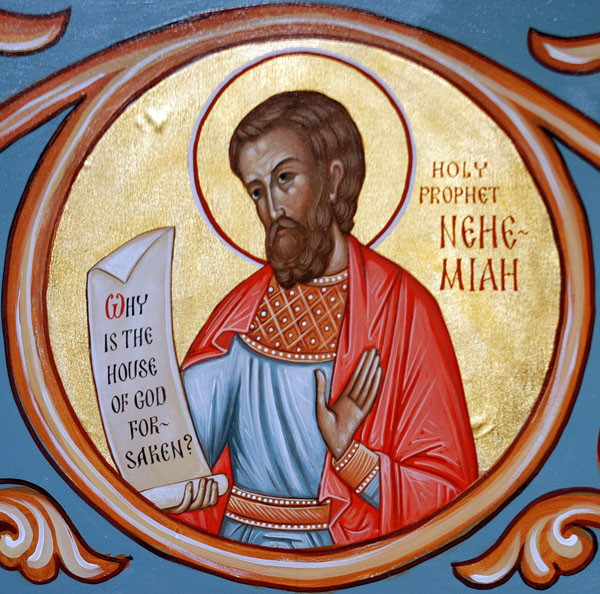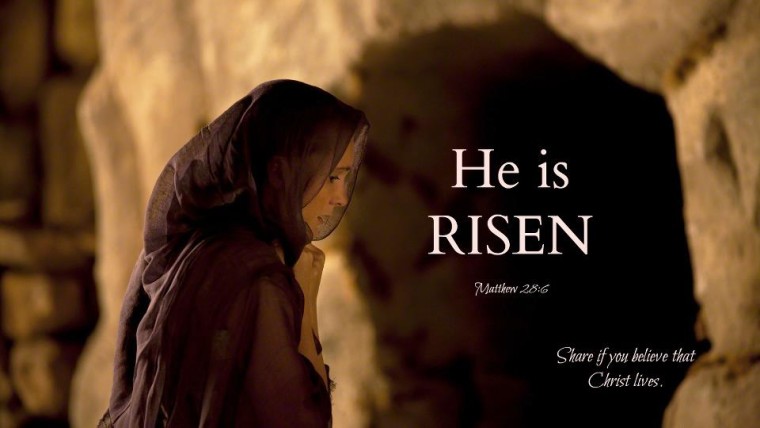Several weeks ago, our church read an excerpt from Jeremiah’s letter from God to the exiled Israelites in Babylon. It struck me as I was hearing Jeremiah’s words read out loud that they were just as prescient for our day as they were then.
A People Deaf to Warnings
In 597 BC the Babylonian armies invaded Israel and Judah and eventually conquered the capital city of the Jewish people in 586 BC. The Fall of Jerusalem to Babylon is one of the great tragedies of the Bible. The walls and buildings of the city of Jerusalem were literally disassembled and the Temple built by King Solomon was destroyed to its foundations. Many people were deported into exile, including the entire royal court.
All of the destruction and deportation was anticipated and foretold through the writings and preaching of the prophet Jeremiah. Jeremiah was not a particularly popular person in his day with the ruling class. Truth tellers are often difficult to hear.
False prophets rose up. Prior to the exile, they preached a message of denial. After the exile, they preached a “quick fix” approach, promising the exile would be a short few years, and that God would restore things back to the “good ole’ days” quickly. The truth was more severe.
The problems with the nation were deep and they went all the way to the top. Corruption existed at the highest levels—with the kings themselves, Ahab and Zedekiah. These men would ultimately be judged by God unto death for their spiritual adultery with foreign powers and gods, for their rebellion against God’s commands and for their lies.
Hope, But Not False Hope
One of the most cherished parts of Jeremiah’s writings are his promises of hope to the people of God amid their exile. As severe and devastating as the Babylonian exile was, it was not the end of the story. All hope was not lost. However, such hope should not be falsely understood; restoration would not come quickly. There would be no quick fix. The exiled Jews in Babylon needed to take a long, multi-generational view. It would take 70 long years to turn things around and for Israel to be ready to return to Jerusalem. Here is a portion of God’s letter to the exiles. It said:
Thus says the Lord of hosts, the God of Israel, to all the exiles whom I have sent into exile from Jerusalem to Babylon: Build houses and live in them; plant gardens and eat their produce. Take wives and have sons and daughters; take wives for your sons, and give your daughters in marriage, that they may bear sons and daughters; multiply there, and do not decrease. But seek the welfare of the city where I have sent you into exile, and pray to the Lord on its behalf, for in its welfare you will find your welfare. For thus says the Lord of hosts, the God of Israel: Do not let your prophets and your diviners who are among you deceive you, and do not listen to the dreams that they dream, for it is a lie that they are prophesying to you in my name; I did not send them, declares the Lord.
For thus says the Lord: When seventy years are completed for Babylon, I will visit you, and I will fulfill to you my promise and bring you back to this place. For I know the plans I have for you, declares the Lord, plans for welfare and not for evil, to give you a future and a hope. Then you will call upon me and come and pray to me, and I will hear you. You will seek me and find me, when you seek me with all your heart. I will be found by you, declares the Lord, and I will restore your fortunes and gather you from all the nations and all the places where I have driven you, declares the Lord, and I will bring you back to the place from which I sent you into exile (Jeremiah 29:4-14).
The letter encourages the people that they need to take a long view. It is critically important that they live and even thrive during the exile. In other words, it was incumbent upon them to thrive even though the culture around them was foreign to them—not their home. They should even seek the welfare of the city in which they live so that they can thrive for the long term with the city’s good favor.
Restoration would come eventually. God promised to give them “a hope and a future”, to prosper them with good plans. But, it would take a good long while to see such blessing. By adopting a long view mindset, the Israelites would stay strong for the long haul and stay faithful to God for generations.
Our Day…
The writers of the New Testament considered the secular Roman Empire in which they lived a type of Babylon. The church is the exiled people of God. Peter called the church in the world “scattered exiles” (1 Peter 1:1). This world is not our home. Even though we are citizens of the United States from an earthly perspective, our true and lasting citizenship is in heaven, in a city whose architect and builder is God (Hebrews 11:10). We are destined for the New Jerusalem and the heavenly city prepared for the new earth after the consummation of all things. In the meantime, what are the faithful people of God to do?
Some false voices suggest that the problems are not that severe. That one day soon, we can get things turned around. Beloved, if the election of 2016 has taught us anything, I hope that we have learned that there is not a sinless messianic presidential figure in the offing who will lead the United States of America back to the promised land that it once was.
The faithful need to be disillusioned with the pundits and the politicians who preach a message of false hope and quick fix. The problems that this nation has are deep and intractable. The truth is that it will take generations for this nation to be restored. They will not be solved in the short run with government solutions. On the contrary, national restoration of the United States will come from many generations of faithful consistent witness and discipleship by the church.
If the Foundations be Destroyed…
In Psalm 11, David asks: “If the foundations be destroyed, what shall the righteous do?” There are times when it seems as if the very ground underneath our feet is coming out from under us. This political season may have shaken our confidence in the very institutions which we rely on for stability. However, David knows that if your trust is not in earthly foundations but in the Lord’s sovereign rule, all is secure. Here is David’s answer to his own question:
The Lord is in his holy temple;
the Lord’s throne is in heaven;
his eyes see, his eyelids test the children of man.
The Lord tests the righteous,
but his soul hates the wicked and the one who loves violence.
Let him rain coals on the wicked;
fire and sulfur and a scorching wind shall be the portion of their cup.
For the Lord is righteous;
he loves righteous deeds;
the upright shall behold his face (Psalm 11).
God remains firmly in control of all events happening in the United States of America. He is sovereign over all. So, what will the righteous do?
Go on Being Righteous.
No matter how bleak the circumstances are in this land of exile, our hopeful confidence is ultimately not in the government of the United States of America or its elected leaders. As beautiful and wonderful as our nation is (God has truly shed his grace on thee) our hope and help is in the promised restoration that will only come by the sovereign hand of God and in his sovereign timing.
In the meantime, we take the long view. We go on being righteous, in season or out of season. We proclaim the good news. We plant and build churches, we do good deeds that build up the kingdom of God. We build houses and raise families. We study the scriptures together in community, and we seek the things of first importance, Jesus Christ, and him crucified and raised.
The Lord is in his Holy Temple and he calls us to live and thrive in the midst of exile. We should always seek the welfare of the nation and cities in which we live. By getting involved in the affairs of our community and being the salt and light of Jesus Christ, we manifest the kingdom of God on earth as in heaven. Elections do matter, and we are called to engage in the affairs of our communities and our nation so that the place where we live will be strong and good.
But for God’s sake take the long view, do not be discouraged or lose hope by the affairs of this world. We will remain in exile a good long while. As the Lord promised the people of God of old, his words continue to ring true:
For I know the plans I have for you, declares the Lord, plans for welfare and not for evil, to give you a future and a hope. Then you will call upon me and come and pray to me, and I will hear you. You will seek me and find me, when you seek me with all your heart (Jeremiah 29:11-12).






